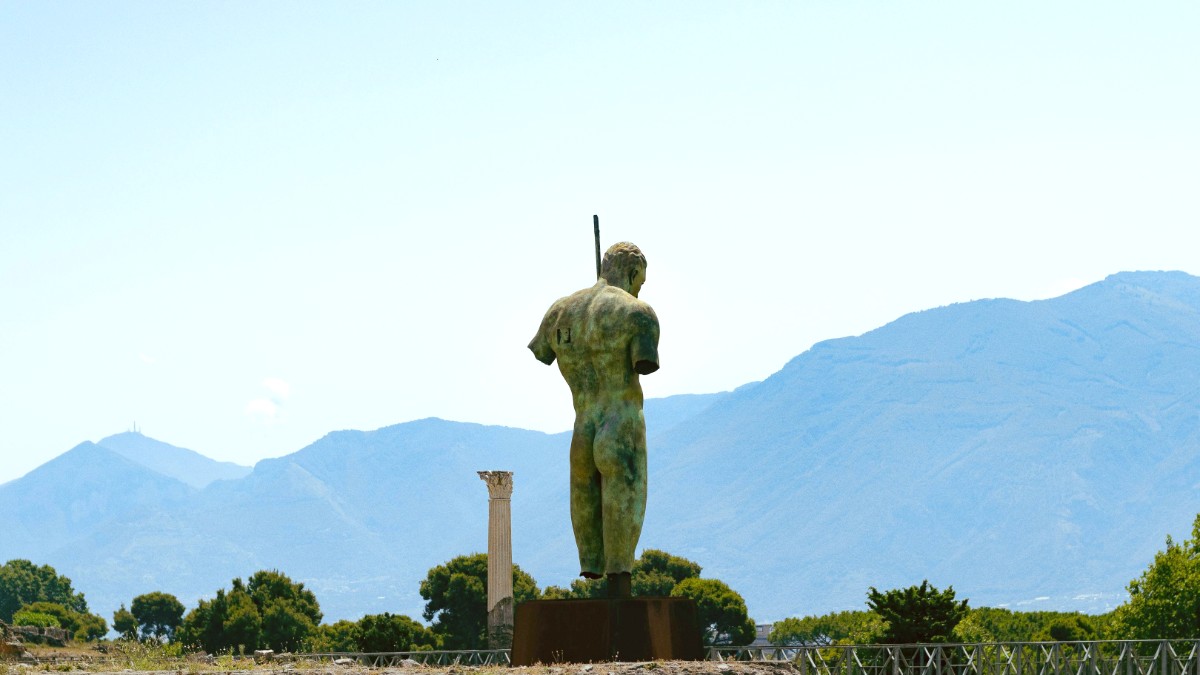
Campania, Italy
Spring (April-May) and Autumn (September-October) hold mild to warm temperatures, with low to moderate precipitation. Humidity grows in spring and lessens in autumn. These periods often rank as ideal for exploring. The light during these months often excels for photography.
Summer (June-August) brings hot and often humid conditions, with low precipitation. The intensity of the sun and heat can make extended outdoor exploration difficult during midday. Winter (November-March) presents cooler temperatures, higher precipitation, and moderate humidity, extending a distinct atmosphere.
High Season (June-Aug, Easter Week) brings the warmest weather, full tourist services, and long daylight hours. However, intense heat and humidity can make walking uncomfortable, and significant crowds point to longer queues. Prices remain highest.
Shoulder Season (Apr-May, Sep-Oct) displays pleasant temperatures ideal for walking, fewer crowds for a relaxed experience, and moderate prices. Rain poses a possibility, specifically in October. Low Season (Nov-Mar) means the fewest crowds and lowest prices, but cooler, wetter weather and shorter daylight hours.
High Season Warning
Consume plenty of fluids, wear a Wide-brimmed hat, seek shade frequently.
Heatstroke or dehydration if visitors omit precautions. Pompeii does not experience monsoons or hurricanes.
Optimal for Exploration
Milder temperatures, comfortable walking, fewer crowds, moderate prices.
Possibility of rain, notably in October. Daylight hours shorten in late autumn.
Budget & Serenity
Fewest crowds, quiet atmosphere, lowest prices for accommodation and flights.
Cooler temperatures, higher chance of rain or damp weather, reduced tourist services.
The shoulder seasons (April-May and September-October) prove ideal for exploring the vast archaeological park. This relates to milder temperatures and more comfortable walking conditions.
If hiking Mount Vesuvius forms part of your plan, these seasons also bring pleasant conditions for the ascent. Winter can be a good choice for those prioritizing crowd avoidance and budget savings, provided they account for cooler, wetter weather.
Spring and autumn offer comfortable walking conditions.
Enjoy a more relaxed exploration during shoulder seasons.
Winter is a good option for lowest prices.
Autumn light often excels for stunning photos.
Be ready for rain in shoulder seasons or cold in winter.
Italy participates in the Schengen Area, which simplifies travel for many nationalities.
Citizens of many non-EU/EEA/Swiss countries may need a Schengen visa for stays up to 90 days. Visa-free entry for many nationalities. ETIAS authorization will be necessary from mid-2025 for visa-exempt travelers.
Carry all documentation to allow a seamless entry. Border control officers might inquire about visit purpose, duration, and proof of funds/accommodation.
Italy uses the Euro (€, EUR). ATMs are widely available. Credit and debit cards find common use. Carry some cash for smaller purchases.
The modern town of Pompei and the archaeological park display general safety. The main concern for tourists in the wider Campania region, especially in crowded areas like Naples train stations or on the Circumvesuviana train, concerns petty crime like pickpocketing.
Stay aware of your surroundings, especially in crowded places. Keep valuables out of sight and secure. Avoid displaying large amounts of cash or expensive electronics openly.
Consider using a Money belt or an RFID blocking wallet to shield your passport and credit cards. Do not leave bags unattended.
Tap water in Pompeii and throughout Italy holds general safety for drinking. Food hygiene standards stand high; Italian establishments adhere to strict regulations.
Tap water is generally safe to consume.
If sensitive, consider bottled water or a Filter bottle.
Pharmacies (Farmacie) appear widely available (green cross sign) for over-the-counter medications and basic advice. Public hospitals hold emergency rooms (Pronto Soccorso).
Pharmacists can suggest remedies for minor ailments.
Non-EU citizens: private Travel insurance is a strong suggestion.
Be aware of your surroundings, especially in crowded places like the Circumvesuviana train. Keep valuables out of sight and secure to deter pickpockets.
Use a Money belt or RFID wallet.
Avoid openly displaying cash or expensive electronics.
| Coverage Aspect | Benefits | Recommendation |
|---|---|---|
| Medical Emergencies | Hospitalization, doctor visits, emergency medical evacuation. | Important for all travelers, especially non-EU citizens. |
| Trip Interruption | Covers non-refundable costs if your trip cancels or shortens. | Obtain policy as soon as booking, to maximize coverage. |
| Baggage Protection | Loss, theft, or delay of luggage and personal belongings. | Valuable for peace of mind and protecting your items. |